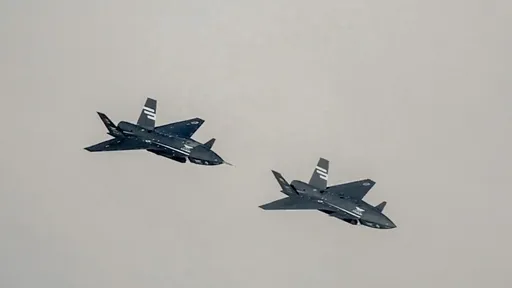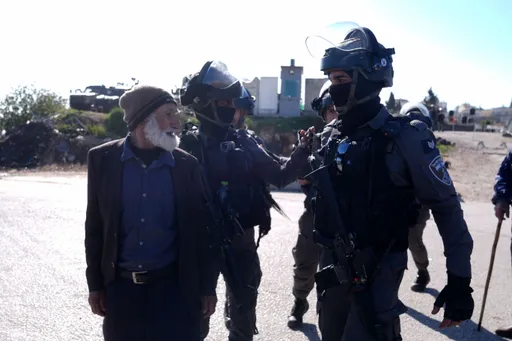US President Donald Trump is expected to announce on Wednesday that the United States recognises Jerusalem as the capital of Israel and will move its embassy there, breaking with longtime US policy and potentially stirring unrest.
Here is how leaders and senior officials from the region and around the world reacted to the move.
Palestinian Authority's president
"President Abbas spoke after his call with President Trump with the presidents of Russia and France, with the Pope and with King Abdullah of Jordan. He told them such a move was rejected and he urged them to intervene to prevent it from happening," the Palestinian president's spokesman said.
Hamas' chief
"The American administration's recognition of occupied Jerusalem as the occupation's capital and moving its embassy to Jerusalem crosses every red line" said Hamas chief Ismail Haniya in a letter to world leaders.
Israel's Jerusalem mayor, intelligence minister
"They just take the symbol of the consulate and switch it to the embassy symbol – two American Marines can do it in two minutes, and give the ambassador David Friedman a space to sit in," Israel's mayor of Jerusalem Nir Barkat said.
"My impression is that the president will recognise Jerusalem, the eternal capital of the Jewish people for 3,000 years, as the capital of the state of Israel,” Israeli Intelligence Minister Israel Katz said.
UN's secretary-general
"We have always regarded Jerusalem as a final status issue that must be resolved through direct negotiations between the two parties based on relevant Security Council resolutions," UN spokesman Stephane Dujarric said, adding that UN Secretary-General Antonio Guterres has “consistently warned against any unilateral action that would have the potential to undermine the two-state solution."
Turkey's president
"Mr Trump, Jerusalem is the red line of Muslims," Turkey's President Recep Tayyip Erdogan said. Ankara has threatened to cut diplomatic ties with Israel if Trump recognises Jerusalem.
Iran's supreme leader
"That they claim they want to announce Quds as the capital of occupied Palestine is because of their incompetence and failure," Iranian Supreme Leader Ayatollah Ali Khamenei Khamenei said, using the Arabic name for Jerusalem.
Pope Francis
The Catholic pontiff said "recognising the rights of all people" in the Holy Land is a primary condition for dialogue.
He made his comments to a group of visiting Palestinians involved in inter-religious dialogue with the Vatican a day after he spoke to Palestinian President Mahmoud Abbas about the crisis.
Jordan's king, foreign minister
The Jordanian monarch King Abdullah, whose dynasty is the custodian of the Muslim holy sites in Jerusalem, told Trump that moving the embassy there would have "dangerous repercussions" for the region and would obstruct US efforts to promote Israeli-Palestinian peace talks.
Jordan plans to convene an emergency meeting of the Arab League and the Organization of Islamic Cooperation on Trump's new Jerusalem policy, said Foreign Minister Ayman al Safadi.
Saudi Arabia's king
King Salman stressed to Trump that any US announcement on the status of Jerusalem "will hurt peace talks and increase tension in the region” and said it would "inflame Muslim feelings all over the world,” the Saudi Press Agency said.
Morocco's king
Morocco's King Mohammed VI warned US President Donald Trump against moving the American embassy to the contested holy city of Jerusalem.
In an open letter to the American president, the Moroccan king expressed his "deep personal concern" and "the great concern felt by Arab and Muslim states and peoples" over moves to recognise the city as Israel's capital and transfer the US embassy there.
The monarch was writing as head of the 57-member Organisation of Islamic Cooperation's Al Quds Committee, which lobbies on issues related to the city, holy to three of the world's major religions.
"The current step is likely to negatively impact the prospects of a just and comprehensive solution to the Palestinian-Israeli conflict," the letter said.
The king urged Trump to avoid anything that could "exacerbate feelings of frustration and disappointment, which are the basis of extremism and terrorism."
Egypt's president
Egypt's Abdel Fattah el Sisi cautioned Trump against "taking measures that would undermine the chances of peace" and complicate matters in the Middle East, a presidential statement released in Cairo said.
Russia's president
Russia's Vladimir Putin told Palestinian President Abbas in a phone call that Russia supports resumption of talks between Israel and Palestinian authorities, including on the status of Jerusalem, the Kremlin said.
France's president
French President Emmanuel Macron earlier said he reminded Trump in a phone call that the fate of Jerusalem should be determined in negotiations on setting up a Palestinian state alongside Israel.
Germany's foreign minister
"Recognising Jerusalem as the capital of Israel does not calm a conflict, rather it fuels it even more," Germany's foreign minister Sigmar Gabriel said, adding such a move "would be a very dangerous development."
China's foreign ministry
"We are concerned about the possible escalation of tensions," foreign ministry spokesman Geng Shuang said.
"All relevant parties should bear regional peace and tranquility in mind, be cautious in words and deeds, avoid impacting the foundation for the settlement of the issue of Palestine, and avoid causing new confrontation in the region."























